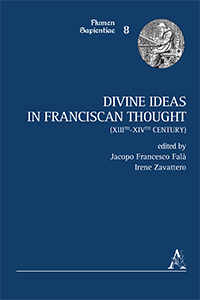Franciscan Studies 78 (2020)
Jacopo Francesco Falà, Irene Zavattero (eds.), Divine Ideas in Franciscan Thought XIIIth-XIVth century Flumen Sapientiae. Studi sul pensiero medievale, 8 (Roma: Aracne, 2018). 536 pp. ISBN 978-88- 255-2191-7.
In recent years, the doctrine of the divine ideas has garnered the interest of both historians of Christian thought and systematic theologians, par- ticularly their theological basis in the thought of St. Augustine and their eventual decline in the late middle ages. Despite this rise of scholarly interest in what was a commonplace view for centuries, there remains several lacunae of study in its historical study.
This absence of research might be due to the usual story of the divine ideas tradition: the divine ideas theory dominated Christian thought on both the epistemological basis of humankind’s certainty and the ontological ground of her being, reaching its crescendo in the thought of the great Franciscan doctor St. Bonaventure. After St. Thomas Aquinas, however, the importance of the divine ideas for both epistemology and ontology declined, and in an interesting twist, it would be the Francis- cans Blessed John Duns Scotus and William of Ockham who would essentially banish the divine ideas from Christian thought, and usher in various modern notions of ontology and epistemology, now cut off from their ground in the divine Logos. [...]
Franciscan Studies 78(2020)









